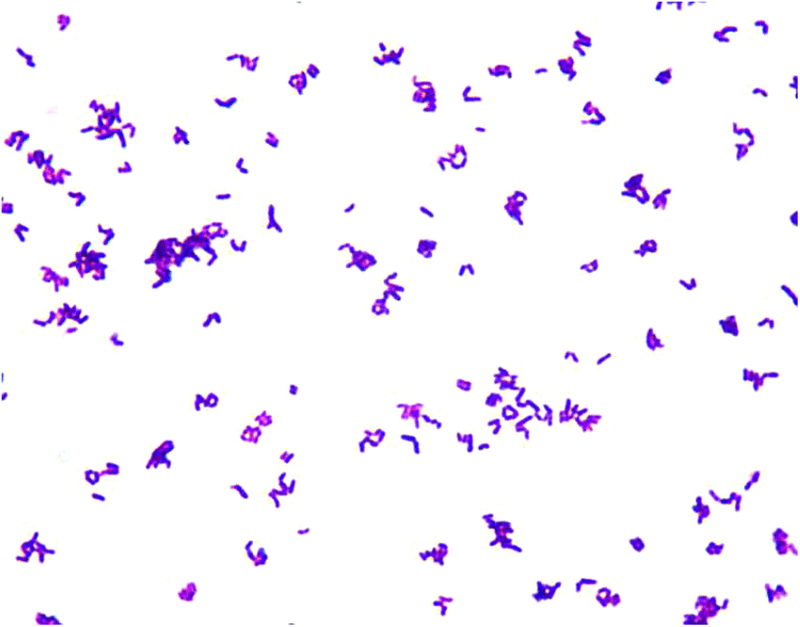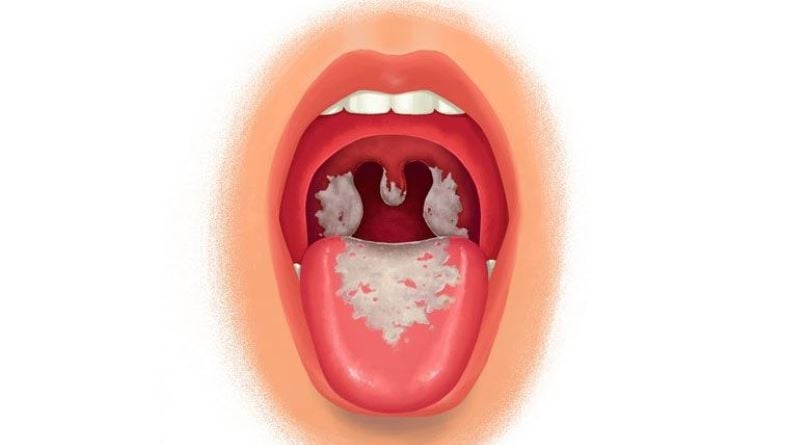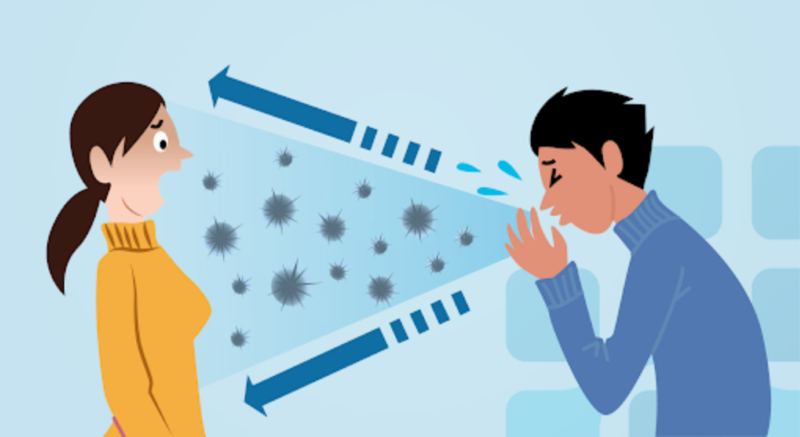Currently, there have been deaths due to diphtheria, causing people to be confused about this dangerous disease. So what are the symptoms of the disease, is it contagious, and what are the effective methods of diagnosing the disease? The following article will provide this information to readers!
General information about diphtheria
Diphtheria is an acute bacterial infection caused by Corynebacterium diphtheriae. The disease causes a thick, tough, pale gray or white pseudomembrane containing bacteria, necrotic epithelial cells, macrophages and fibrin.
Diphtheria is an acute bacterial infection caused by the bacterium Corynebacterium diphtheriae.
They adhere to and cover parts such as the tonsils, pharynx, larynx, nose, and even spread down to the bronchi, causing respiratory obstruction and difficulty breathing. In addition, the disease can appear on the skin, other mucous membranes such as the conjunctiva or genitals.
According to medical experts, diphtheria has the potential to develop into an epidemic if not well controlled, especially in children under 15 years old who have not been fully vaccinated.
Classification of diphtheria
Diphtheria is classified according to its prevalence as follows:
- Pharyngeal diphtheria;
- Laryngeal diphtheria;
- Nasal diphtheria;
- Ocular diphtheria;
- Cutaneous diphtheria
- ….
Symptoms of diphtheria
Some common symptoms of diphtheria include: mild fever, cough, hoarseness, sore throat, loss of appetite... The most typical sign to recognize diphtheria is the appearance of a thick, tough, pale gray or ivory-white pseudomembrane after about 2-3 days of illness.
Diphtheria is easily recognized by the pseudomembrane in the larynx or spreading from the pharynx down.
Dangerous complications of diphtheria
This is both an infectious and toxic disease and the serious damage of the disease is mainly caused by the exotoxin of diphtheria bacteria. The disease causes dangerous complications such as nerve damage leading to paralysis, loss of bladder control, paralysis of the diaphragm, lung infection (respiratory failure or pneumonia), and even death. Fatal cases are mainly due to the rapidly growing pseudomembrane that blocks the upper respiratory tract or the effects of the toxin on the heart or nervous system.
Is diphtheria contagious?
The alarming reality is that diphtheria is returning to the northern mountainous areas with low vaccination rates such as Ha Giang, Dien Bien, Tuyen Quang, Thai Nguyen... In particular, the death from diphtheria in Nghe An and the case in Bac Giang due to contact with the deceased have made people worried about this dangerous disease. So is diphtheria contagious and what are the common ways of transmission?
Diphtheria is an infectious disease that spreads in many different forms, and is considered to spread quite quickly through the following main routes:
Respiratory transmission
Medical experts say that the respiratory tract is the most common route of transmission of diphtheria. Bacteria from infected people can spread to healthy people through talking, coughing, sneezing, etc. Specifically, droplets containing diphtheria bacteria mix into the air, and healthy people accidentally inhale them and become infected, especially high risk for those who are not immune.
The respiratory tract is the most common route of transmission of diphtheria.
Vector-borne
In addition to direct transmission through the respiratory tract, diphtheria can be transmitted indirectly through intermediate objects. Specifically, the risk of infection is high when healthy people come into contact with objects contaminated with secretions or droplets containing diphtheria bacteria from sick people.
The incubation period of diphtheria usually lasts from 2 to 5 days, and in some cases longer. People need to clearly identify the transmission routes of the disease and from there have effective preventive measures.
Methods of diphtheria diagnosis
Diphtheria is the cause of serious health complications, even life-threatening. Therefore, people should absolutely not be subjective, protect the health of themselves and their families with the following measures:
- Vaccinations are complete and on schedule;
- Wash your hands frequently with soap and clean water;
- Cover your mouth and nose when coughing or sneezing;
- Clean houses, schools, workplaces, etc. to ensure ventilation;
- Clean mouth, nose, throat daily;
- Limit contact with people who are sick or suspected of being sick.
In particular, people need to go to medical facilities immediately when any unusual signs of suspected illness appear. The doctor will order a sample of the patient's throat or tissue sample from the patient's infected wound and send it for testing to determine if it is Corynebacterium diphtheriae.
Currently, MEDLATEC Healthcare System is the unit that performs diagnostic tests and monitors diphtheria including:
Diphtheria screening test
- Specimen: Throat swab;
- Test value: The test helps to make a preliminary assessment of bacterial morphology and is valuable in determining the cause of the disease;
- Time to return results: 90 minutes from the time of sample receipt.
Automated system for bacterial culture, identification and resistance testing
- Specimen: Throat swab;
- Test value: Detects the bacterial cause of infection and the sensitivity/resistance of the pathogens. Provides accurate information about the causative agent at the genus/species level and has quantitative antibiotic susceptibility test results;
- Time to return results: 2-4 days from the time of receiving sample.

MEDLATEC provides diagnostic and monitoring tests for diphtheria.
MEDLATEC is committed to providing people with accurate diagnostic results, in line with two international standards ISO 15189:2012 and CAP, performed on a modern, fully automated equipment system imported from reputable companies around the world . The unit gathers a team of experts and leading doctors to enthusiastically advise customers if test results detect abnormalities, thereby providing effective treatment directions.
People who need to schedule a test or have questions related to diphtheria, please contact MEDLATEC 's hotline 1900 56 56 56 for support.




























![[Photo] National Assembly Chairman Tran Thanh Man visits Vietnamese Heroic Mother Ta Thi Tran](https://vphoto.vietnam.vn/thumb/1200x675/vietnam/resource/IMAGE/2025/7/20/765c0bd057dd44ad83ab89fe0255b783)







































































Comment (0)